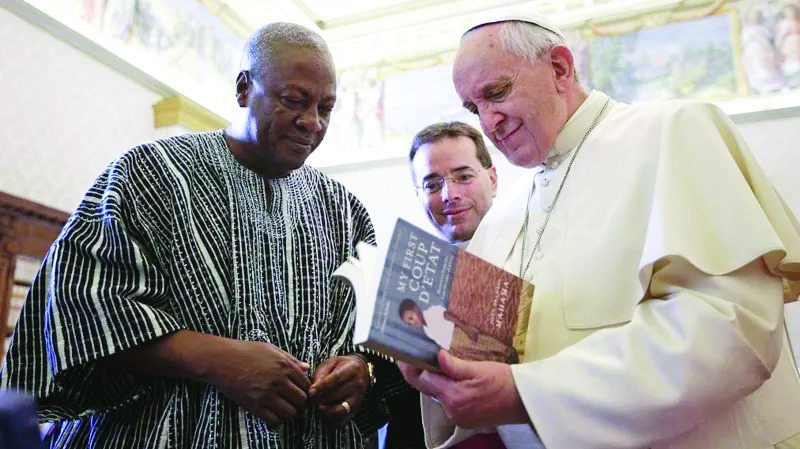Strategist predicts SA Reserve Bank will follow….
In a desperate attempt to restore stability to financial markets, at least nine central banks are likely to synchronise interest rates cuts within 10 days. This is the view of Michael Power, an investment strategist at Investec Asset Management, who predicted that South Africa’s Reserve Bank “will follow almost immediately”.Reserve Bank governor Tito Mboweni has hiked rates by 5 percentage points since June 2006, in an attempt to get inflation back within the 3 per cent to 6 per cent target range.The bank’s benchmark measure has breached the target since April last year.It stood at 13,6 per cent in August.But economists believe the interest rate cycle has peaked.They have been forecasting rate cuts by next June.Power said the central banks of Australia, Canada, New Zealand, the euro region, the UK, Sweden, the US, Denmark and Switzerland would be at the core of a synchronised operation.”Hong Kong will follow, as will all the dollar-linked Gulf states.China will do it a few days later, triggering a series of cuts in east Asia and the Indian subcontinent.”He added: “We saw something similar on 9/11, but really you have to go back to the 1930s for a comparable exercise – and then the central banks did not really co-operate closely.”Jean-Francois Mercier, a contributing economist at Citi, had a different view.He said there was less likelihood of concerted action now than “in the case of geopolitical risk like 9/11”.He thought it unlikely that countries such as Turkey and South Africa, with vulnerable currencies, would follow.The Reserve Bank’s monetary policy committee (MPC) meets today and tomorrow to debate the next move.Power said the synchronised move was not likely to happen this week.If Mboweni was to co-operate with his international counterparts, he would have to call a special meeting of the MPC – for the first time since September 2003, he said.On that occasion, the rand had firmed and inflation had started falling after an error in the consumer price figures had been corrected.Dennis Dykes, the chief economist of the Nedbank group, said official interest rates were “not necessarily where the problem is”, as market rates were often far higher than official rates.Bank lending was restricted because many major institutions had high levels of bad debt and had suffered capital losses.The situation would be remedied only when the crisis had passed and banks were able to recapitalise, he said.Domestic factors that could affect the MPC decision include the weakening rand and less pressure from global food and fuel prices.Elna Moolman, a group economist at Barnard Jacobs Mellet Securities, said: “Food inflation will start moderating soon, thanks to favourable base effects and a retreat in many agricultural commodities and oil prices.”But the rand had lost considerable ground.Moolman said rand weakness would effect consumer inflation with a delay of about nine months, bringing the risk that a reversal in inflation to below the target ceiling could be delayed.- Business ReportThis is the view of Michael Power, an investment strategist at Investec Asset Management, who predicted that South Africa’s Reserve Bank “will follow almost immediately”.Reserve Bank governor Tito Mboweni has hiked rates by 5 percentage points since June 2006, in an attempt to get inflation back within the 3 per cent to 6 per cent target range.The bank’s benchmark measure has breached the target since April last year.It stood at 13,6 per cent in August.But economists believe the interest rate cycle has peaked.They have been forecasting rate cuts by next June.Power said the central banks of Australia, Canada, New Zealand, the euro region, the UK, Sweden, the US, Denmark and Switzerland would be at the core of a synchronised operation.”Hong Kong will follow, as will all the dollar-linked Gulf states.China will do it a few days later, triggering a series of cuts in east Asia and the Indian subcontinent.”He added: “We saw something similar on 9/11, but really you have to go back to the 1930s for a comparable exercise – and then the central banks did not really co-operate closely.”Jean-Francois Mercier, a contributing economist at Citi, had a different view.He said there was less likelihood of concerted action now than “in the case of geopolitical risk like 9/11”.He thought it unlikely that countries such as Turkey and South Africa, with vulnerable currencies, would follow.The Reserve Bank’s monetary policy committee (MPC) meets today and tomorrow to debate the next move.Power said the synchronised move was not likely to happen this week.If Mboweni was to co-operate with his international counterparts, he would have to call a special meeting of the MPC – for the first time since September 2003, he said.On that occasion, the rand had firmed and inflation had started falling after an error in the consumer price figures had been corrected.Dennis Dykes, the chief economist of the Nedbank group, said official interest rates were “not necessarily where the problem is”, as market rates were often far higher than official rates.Bank lending was restricted because many major institutions had high levels of bad debt and had suffered capital losses.The situation would be remedied only when the crisis had passed and banks were able to recapitalise, he said.Domestic factors that could affect the MPC decision include the weakening rand and less pressure from global food and fuel prices.Elna Moolman, a group economist at Barnard Jacobs Mellet Securities, said: “Food inflation will start moderating soon, thanks to favourable base effects and a retreat in many agricultural commodities and oil prices.”But the rand had lost considerable ground.Moolman said rand weakness would effect consumer inflation with a delay of about nine months, bringing the risk that a reversal in inflation to below the target ceiling could be delayed.- Business Report
Stay informed with The Namibian – your source for credible journalism. Get in-depth reporting and opinions for
only N$85 a month. Invest in journalism, invest in democracy –
Subscribe Now!






